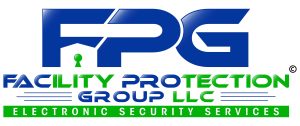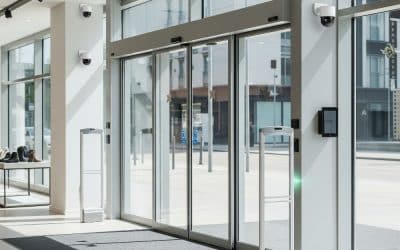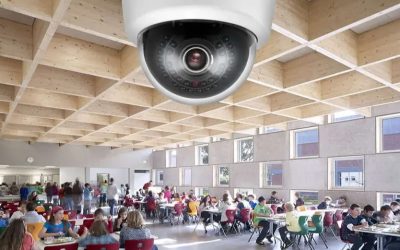 In the realm of property management, ensuring the safety and security of both the physical assets and the individuals within those properties is paramount. With the rise in security threats, property managers must adopt a proactive approach to safeguard their buildings and tenants. This article outlines comprehensive physical security strategies tailored for property management companies, emphasizing the importance of a layered security system, innovative technology, and best practices to mitigate risks.
In the realm of property management, ensuring the safety and security of both the physical assets and the individuals within those properties is paramount. With the rise in security threats, property managers must adopt a proactive approach to safeguard their buildings and tenants. This article outlines comprehensive physical security strategies tailored for property management companies, emphasizing the importance of a layered security system, innovative technology, and best practices to mitigate risks.
Understanding the Importance of Physical Security
Physical security encompasses a range of measures designed to protect properties from unauthorized access, theft, vandalism, and other potential threats. For property management companies, the stakes are high; not only do they have a responsibility to protect their clients’ investments, but they also must ensure the safety of tenants and visitors.
The Impact of Security Risks
The consequences of inadequate security can be severe. Property managers may face financial losses due to theft or damage, legal liabilities from tenant injuries, and reputational harm that can deter future tenants. A proactive security strategy can help mitigate these risks, fostering a safe environment that attracts and retains tenants.
The Role of Technology in Security
Advancements in technology have transformed the landscape of physical security. From smart locks to surveillance systems equipped with artificial intelligence, property managers can leverage these tools to enhance their security measures. By integrating technology into their security protocols, property management companies can respond more effectively to incidents and deter potential threats.
Conducting a Comprehensive Risk Assessment
Before implementing any security measures, property managers should conduct a thorough risk assessment. This process involves identifying vulnerabilities within the property and evaluating the potential threats that could exploit these weaknesses.
Analyzing Local Crime Trends
Understanding the local crime landscape is crucial. Property managers should analyze crime statistics in the area, focusing on trends that may affect their properties. This information can guide decisions on where to allocate resources and which security measures to prioritize.
Identifying Vulnerable Areas
Once crime trends are assessed, property managers should identify specific areas within their properties that may be vulnerable to security breaches. Commonly overlooked spots include:
-
- Entrances and Exits: Ensure all entry points are secure and monitored.
- Parking Lots: These areas can be hotspots for criminal activity, especially at night.
- Common Areas: Spaces like lobbies, hallways, and stairwells should be well-lit and monitored.
Implementing Access Control Systems
Access control systems are essential for managing who can enter specific areas of a property. By restricting access to authorized individuals, property managers can significantly reduce the risk of unauthorized entry.
Types of Access Control Solutions
There are various access control solutions available, each with its own advantages:
-
- Key Cards and Fobs: These devices allow for easy entry while providing a record of who accessed the property and when.
- Biometric Systems: Utilizing fingerprints or facial recognition, these systems offer a high level of security by ensuring that only authorized individuals can gain access.
- Smart Locks: These modern locks can be controlled remotely, allowing property managers to grant or revoke access as needed.
Regularly Updating Access Credentials
It is crucial to regularly update access credentials, especially when tenants move out or employees leave. Promptly deactivating access for former tenants or employees helps prevent unauthorized access and enhances overall security.
Enhancing Surveillance with Modern Technology
Surveillance systems play a vital role in deterring criminal activity and providing evidence in the event of a security breach. Property managers should invest in high-quality surveillance technology to monitor their properties effectively.
Choosing the Right Surveillance Equipment
When selecting surveillance equipment, consider the following:
-
- High-Definition Cameras: These provide clear images, even in low-light conditions, making it easier to identify individuals.
- Remote Monitoring Capabilities: Look for systems that allow property managers to monitor footage in real-time from anywhere, enhancing responsiveness to incidents.
- Video Analytics: Advanced systems can analyze footage to detect suspicious behavior, such as loitering or unauthorized access attempts.
Strategic Camera Placement
Proper placement of surveillance cameras is essential for maximizing their effectiveness. Key areas to monitor include:
-
- Entrances and Exits: Capture footage of all individuals entering and leaving the property.
- Parking Lots: Monitor vehicles and deter potential theft or vandalism.
- Common Areas: Ensure that shared spaces are visible to discourage inappropriate behavior.
Establishing a Robust Alarm System
An effective alarm system is a critical component of any physical security strategy. These systems can alert property managers and law enforcement to potential threats, enabling a swift response.
Types of Alarm Systems
Consider implementing the following types of alarm systems:
-
- Intrusion Alarms: These systems detect unauthorized entry and can trigger alerts to property managers or security personnel.
- Fire Alarms: Essential for protecting tenants and property, fire alarms should be regularly tested and maintained.
- Environmental Sensors: These can detect issues such as flooding or gas leaks, providing an additional layer of safety.
Regular Maintenance and Testing
To ensure that alarm systems function correctly, property managers should establish a routine maintenance schedule. Regular testing and inspections can help identify any issues before they become critical.
Creating a Safe Environment for Package Deliveries
With the rise of online shopping, package theft has become a significant concern for property managers. Implementing secure delivery solutions can help mitigate this risk.
Designated Package Drop-off Areas
Creating a secure area for package deliveries can deter thieves. Consider the following options:
-
- Secure Lockers: Install lockers where delivery personnel can leave packages, accessible only to tenants.
- CCTV Monitoring: Ensure that package drop-off areas are monitored by surveillance cameras to deter theft.
Communicating Delivery Policies to Tenants
Property managers should clearly communicate delivery policies to tenants, ensuring they understand how to securely receive packages. This can include guidelines on using designated drop-off areas and reporting suspicious activity.
Engaging Tenants in Security Practices
Fostering a sense of community among tenants can enhance security. When tenants feel invested in their environment, they are more likely to report suspicious behavior and adhere to security protocols.
Encouraging Open Communication
Property managers should maintain open lines of communication with tenants regarding security concerns. Regular meetings or newsletters can keep tenants informed about security measures and encourage them to share their observations.
Implementing Tenant Security Programs
Consider establishing tenant security programs that incentivize participation in safety initiatives. This could include:
-
- Safety Workshops: Host workshops to educate tenants on personal safety and property security.
- Community Watch Programs: Encourage tenants to look out for one another and report any suspicious activity.
Conducting Regular Security Audits
Regular security audits are essential for identifying vulnerabilities and ensuring that security measures remain effective. Property managers should establish a routine for conducting these audits.
Assessing Security Measures
During a security audit, property managers should evaluate the effectiveness of existing security measures, including:
-
- Access Control Systems: Are they functioning as intended? Are there any unauthorized access attempts?
- Surveillance Equipment: Is the equipment up-to-date and properly maintained?
- Alarm Systems: Are alarms being triggered appropriately, and are they regularly tested?
Updating Security Protocols
Based on the findings of security audits, property managers should update their security protocols as needed. This may involve investing in new technology, enhancing training for staff, or revising access policies.
Training Staff on Security Protocols
Property management staff play a crucial role in maintaining security. Providing comprehensive training on security protocols can empower staff to respond effectively to incidents.
Key Training Topics
Consider including the following topics in staff training:
-
- Emergency Response Procedures: Ensure staff know how to respond to various emergencies, including fires, intrusions, and medical emergencies.
- Recognizing Suspicious Behavior: Train staff to identify and report suspicious activity promptly.
- Utilizing Security Technology: Ensure staff are familiar with operating security systems, including surveillance cameras and alarm systems.
Ongoing Training and Refreshers
Security training should not be a one-time event. Regular refresher courses can help keep staff informed about the latest security practices and reinforce the importance of vigilance.
Collaborating with Professional Security Services
Partnering with professional security services can enhance a property management company’s security capabilities. These experts can provide valuable insights and resources to bolster security measures.
Benefits of Professional Security Services
Engaging with professional security services offers several advantages:
-
- Expertise: Security professionals bring specialized knowledge and experience to assess and address security risks.
- Advanced Technology: Many security firms have access to cutting-edge technology that may not be feasible for property managers to implement independently.
- 24/7 Monitoring: Professional security services can provide round-the-clock monitoring, ensuring a swift response to incidents.
Choosing the Right Security Partner
When selecting a security partner, property managers should consider the following factors:
-
- Reputation: Research the company’s track record and client testimonials.
- Services Offered: Ensure the company provides the specific services needed for your properties.
- Customization: Look for a partner willing to tailor their services to meet your unique security needs.
We Provide Physical Security Solutions For Property Management Companies and Their Properties
Property management firms need strong security solutions to protect the properties under their management, ensure the safety of tenants, and uphold the value of their real estate assets. With multiple access points, diverse tenant profiles, and the potential for criminal activity, properties are vulnerable to security threats such as burglary, vandalism, and unauthorized access.
> Learn More
In an increasingly complex security landscape, property management companies must prioritize physical security to protect their assets and tenants. By implementing a comprehensive security strategy that includes risk assessments, access control systems, surveillance technology, and tenant engagement, property managers can create a safe and secure environment.
Contact Us (877-762-6460) for a free consultation!
View Past Projects
—
 About Facility Protection Group
About Facility Protection Group
Facility Protection Group is a Certified Systems Integrator based in the Southeastern United States, specializing in electronic security services supporting both traditional and cloud based Access Control (Card Access), Video Surveillance / CCTV, Audio / Video Intercoms, and Intrusion Alarm Systems. Founded in 2018 and located in Tampa, Florida; Facility Protection Group has assembled a team that has a tremendous wealth of industry knowledge and experience.

 About Facility Protection Group
About Facility Protection Group




